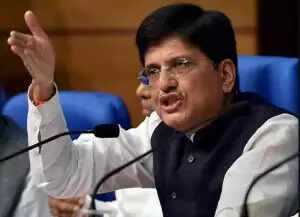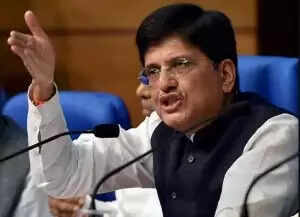
 Significant GST Changes Ahead
Significant GST Changes Ahead
New Delhi: Piyush Goyal, the Union Minister for Commerce and Industry, has emphasized the importance of industries ensuring that the benefits from the recent GST rate rationalization are fully passed on to consumers. This comes as India prepares for a significant overhaul of its indirect tax system starting September 22.
The GST Council has made adjustments to the tax rates on a wide array of products, ranging from soaps to compact cars, simplifying the structure to mainly two rates: 5% and 18%, with a higher 40% rate for luxury and sin goods.
At a recent event, Goyal stated, “It is crucial that we transfer the entire benefit to consumers, as this will also positively impact the industry.”
He further mentioned that the government is actively working to enhance the ease of doing business and boost manufacturing efforts.
Goyal outlined various initiatives taken by the government to foster a better business climate, including the introduction of a new logistics policy, the establishment of new industrial hubs, the decriminalization of minor infractions, and reducing compliance burdens for businesses.
He noted that certain sectors, particularly automobiles, have already begun to pass on these benefits, highlighting that there is a global interest in strengthening trade relations with India through free trade agreements.
Earlier this month, the government instructed businesses to provide tentative pricing for goods, such as cars and consumer electronics, to reflect the price reductions resulting from the GST reforms.
These comparative price lists will be made available on the GST website, allowing consumers to see the benefits when the new two-slab system is implemented.
Additionally, retailers and dealerships must display both the previous and new GST rates in their stores to promote transparency for consumers.
The Central Board of Indirect Taxes and Customs (CBIC) has conducted discussions with industry groups and various ministries to ensure the effective execution of the announced rate cuts from the GST Council meeting.
Industries have agreed to pass on the tax reductions to consumers, with expectations that consumer durable prices will drop by at least 10% and automobile prices by 12-15%.